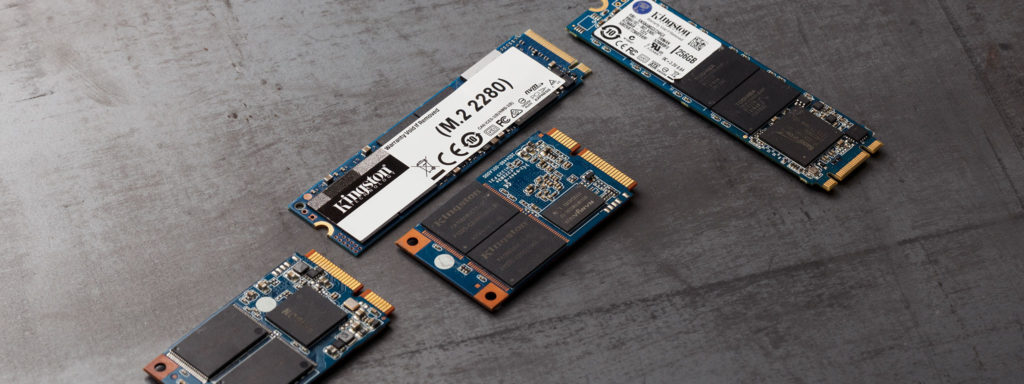The Advantages of Solid-State Drive Upgrades for Increasing Business Efficiency with Faster Computers
As a business owner, you’re keen to invest in technology that can support immediate and long-lasting increases in your profit margin. Several improvements can do this, but few will have the same impact as solid-state drives (SSDs).

What Is the Difference Between a Hard Drive and a Solid-State Drive?
Hard disk drives (HDDs) and SSDs have a number of distinctions between them that are worth taking into account as you decide which strategy is best, from pricing to speed. But it’s first crucial to comprehend the underlying variations in how they function. Read/write heads are a feature of conventional hard drives, and they access data when metal platters rotate. Solid-state SSDs, meanwhile, use NAND flash memory chips.
A lot of business owners are concerned with costs, and when they discover that SSDs are much more expensive, they frequently express mistrust. However, the increased cost is justified by the significant increase in speed.
The advantages of solid-state drives for small businesses
Now a popular upgrade among serious gamers, solid-state drives are also valuable to the small business sector. They are utilized there to enhance dedicated server performance in addition to speeding up desktop and laptop computers.
The outcome? enhanced database access, quicker transaction processing, and less power usage. Therefore, even though SSDs initially cost more, using them results in huge savings for the companies that do.
What to Look for When Choosing a Solid-State Drive
The following step is choosing and deploying the ideal drives for your particular circumstance if you’re prepared to take advantage of the increased speed and many other advantages that SSDs provide. Depending on which devices need this upgrade and how much you want to spend, you can choose the perfect drive.
When choosing an SSD, use the following advice as a guide:
Aim for a 500GB minimum capacity.
Nowadays, buying an SSD with less than 256 gigabytes is pointless (GB). One Terabyte (TB) has many possibilities presently, but due to the higher cost, not all business owners will be prepared to make such a significant investment.
Think about the Form Factor Add-in card (AIC) style SSDs are a good option for businesses that process reams of data on a practically constant basis. These powerful drives attach to the motherboard’s peripheral component interconnect express (PCIe) connection and resemble graphics processing units (GPUs).
The majority of small enterprises will not need this choice and will opt instead for a 2.5-inch or M.2 type SSD. The Serial ATA (SATA) connection to the motherboard is used by the 2.5-inch type of SSD, which is the most popular for consumers and small businesses. SATA or directly putting the drive into the motherboard’s PCIe slot can power smaller M.2 SSDs.
Power Consumption Must Be Considered
Power usage should be a top priority for a small organization with limited resources. While SSDs will typically use less power than HDDs, some will be much more energy-efficient than others. Battery life should be considered more than speed alone when choosing an SSD if you intend to provide workers with company laptops for mobile work tasks.
Examine NAND Flash More Closely
Even though you could have limited control over flash storage, it might be worthwhile to look into if you’re having trouble deciding between two equally enticing solutions. Users may “plug and play” the necessary data thanks to NAND’s greater mobility. Contrasted with conventional 2.5-inch and M.2 sizes, the drawback is a relative paucity of storage space.
You could feel overwhelmed before you even start the process of choosing SSDs because there is so much to consider. If you’re having trouble getting started, think about consulting a skilled computer specialist. For instance, the professionals at Nexcel can carefully examine your spending plan and professional objectives to decide which SSDs are best for your current circumstances.
Changing to a Solid-State Drive
An SSD that is suitable for your computer or server has been chosen by you. You’re now prepared to finally replace that outdated hard drive with a quicker and more dependable model. You can move specific files from an old drive to a new one using a variety of techniques.
It will take a little more work, though, if you want to migrate every file on the computer completely, including the operating system. Install a fresh installation of Windows 10 on the new drive, after which you can use cloning software like Macrium Reflect or Acronis Disk Director to make an exact copy of your whole hard drive and transfer it to a partition on your new SSD.
If all of this seems like a lot of effort, trust our trained technicians to manage the whole thing from start to finish.
SSD upgrades and other business IT services are provided by Nexcel.
Nexcel can assist if you’re prepared to upgrade your company equipment with SSDs and other features. We are fully aware of what is necessary to get (and maintain) your firm operating effectively. You can streamline processes with our help to increase output and revenues. To learn more about our company IT services, apple hard drive recovery services, commercial cloud services, and other services, get in touch with us right away.
